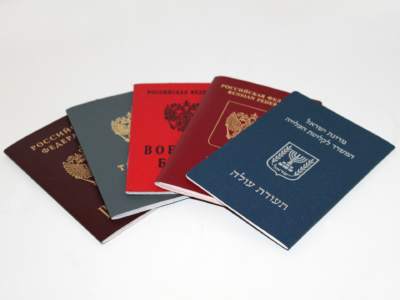After Jewish summer camp, USY, and a Talmud Torah education, my friend told me he was disillusioned with Zionism. “I’ve always found the idea of Diaspora to be super meaningful,” he said. “The majority of Judaism is based on Diasporic tradition and the allegory of Diaspora. Modern Zionism sort of spits at this.”
Whenever I hear about college-age Jews disagreeing with Zionism, it’s almost always within context of the Israeli-Palestinian conflict. But in my experience, this overshadows young Jews who believe in Jewish self-determination but struggle with Zionism’s relationship to Jewish Diaspora. For years, we were told by our teachers that Zionism is our friend. But as Diaspora Jews – living in an age of countless #selfcare social media posts about leaving toxic people out of our lives – why should we keep Zionism around if the movement doesn’t really care about us?
Let’s back up a second. Is Zionism antagonistic towards the idea of a Diaspora? Of course. The Zionism of David Ben Gurion advocated for all Jews moving to Israel, with a messianic redemption narrative that insists Jewish salvation means completely leaving the Diaspora world. But this isn’t the full picture. It’s important to understand that for traditional Zionism, the Diaspora is where pogroms and state-sponsored discrimination and oppression took place – where Jews had supposedly become complacent with their constant hounding, humiliation, and treatment as sub-human citizens.
Countless events inspired Zionism’s distaste for the Diaspora. In Czarist Russia, Jews were restricted to an area known as the Pale of Settlement, created to make the rest of the empire Jew-free. This came with laws controlling Jewish commerce and quotas for Jews in schools, alongside official encouragement of pogroms from the Czar and the Russian Orthodox establishment. In France, a Jewish officer was accused and sentenced to life imprisonment on clearly false spying charges, so much so that the real spy was caught and openly acquitted to keep the officer in prison. The Dreyfus Affair, as it was called, inspired Theodor Herzl’s Zionism after he covered the case as a journalist.
Because my family immigrated from the Soviet Union, this isn’t ancient history so much as personal history for me, and I very much get the anti-Diaspora attitude. But does this mean that I have to accept this attitude as an inherent and permanent part of my Zionism? No. As young Jews, we get to write the next chapter of what Judaism looks like. It’s in our power to do the same with Zionism.
This power to change the narrative is easiest for me to see in the claim that the prime minister of Israel speaks for all Jews. This is an uncomfortable part of today’s Zionism for many Diaspora Jews, especially as Benjamin Netanyahu himself reinforces it. In early 2015, Netanyahu was invited by Republicans to speak to the U.S. Congress about the proposed Iran Deal. In defending his speech, seen as a partisan and polarizing move, Netanyahu referenced a recent trip to Paris, saying, “I went to Paris not just as the prime minister of Israel but as a representative of the entire Jewish people.” This almost messianic idea of collective representation spurred Jewish Senator Dianne Feinstein to call Netanyahu “arrogant” and angered many American Jews.
As a Russian-speaking Jew in America who’s used to mainstream American Jewry claiming to speak for me, I don’t bat an eye at Netanyahu’s claim. Russian-speaking Jews are alienated from arguably the most important part of Jewish history and identity in America: the Holocaust. The narrative advanced and heard by American Jewry is solely one of the gas chambers and concentration camps of Western Europe. For Russian-speaking Jews, ours is the story of the nearly 3 million Jews wiped out in Eastern Europe by mass firings. It’s also the story of Jewish soldiers in the Red Army and Jewish partisans who fought against the Nazis, saving many Jews. A Jewish history without the details of our sacrifice and fight is a history without us, and when American Jewry builds its present without our narrative, the present is also without us.
The discourse of American Jewry doesn’t represent me. And yet, this doesn’t mean I reject American Jewry’s leadership – any more than I reject Zionism because of its anti-Diaspora attitude or the prime minister’s tendency to speak for Diaspora Jews. At the end of the day, individuals have the power to change the narrative by incorporating their own personal experiences and identities. Agreeing with the core of an idea and disagreeing with parts of its wider philosophy aren’t mutually exclusive.
So, why keep Zionism around if it doesn’t care about us as Diaspora Jews? Well, why keep Judaism around if I believe in gay marriage and the Torah traditionally doesn’t? Because there’s more to it than that. For those of us who believe in Jewish self-determination, the answer isn’t to dismiss it in its entirety but to treat it like we do Judaism – to continue wrestling with Zionism like our forefather Jacob wrestled with God and not to mark all of it as false or misguided. Only then will we be able to change it for the better, to include the Diaspora as a proud and integral part of tomorrow’s Zionism, a Zionism that is really ours.
Lev Gringauz is studying journalism at the University of Minnesota.
![passport-2442845_1920 | [Public Domain], via Pixabay](https://newvoices.org/wp-content/uploads/2017/12/passport-2442845_1920.jpg)

